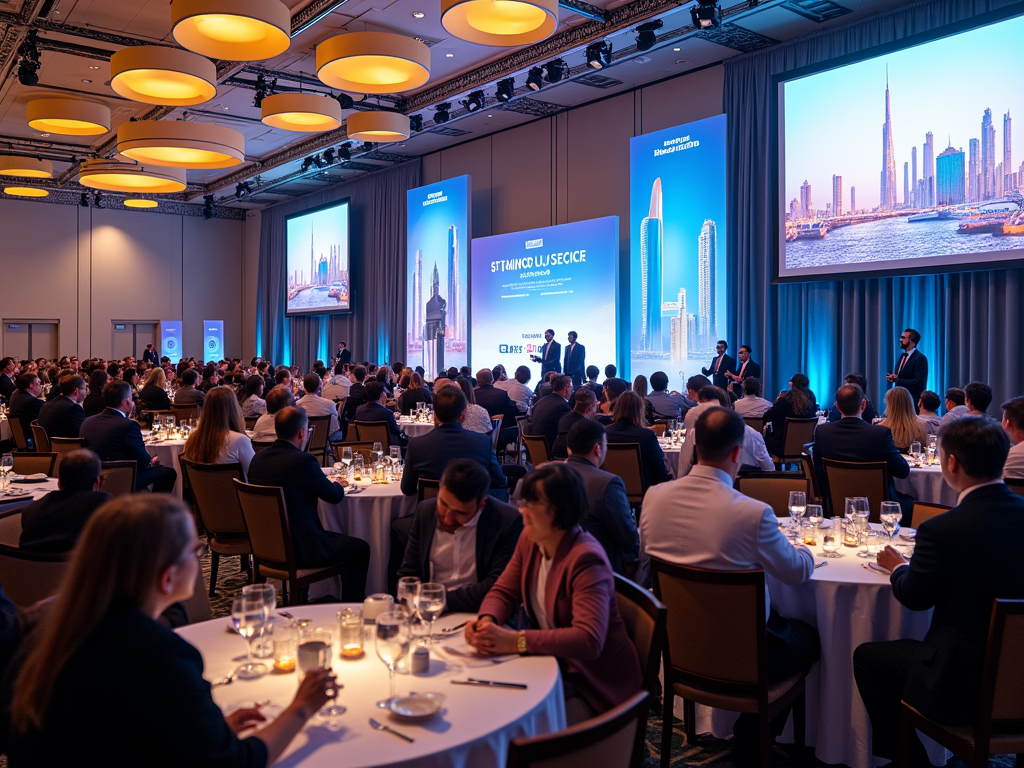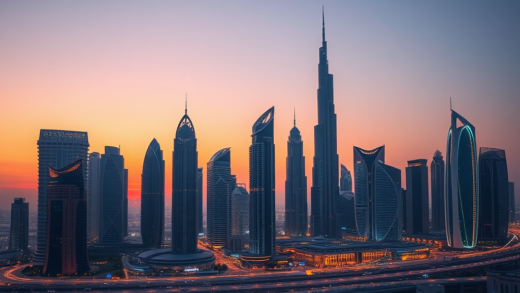Dubai has made significant strides in promoting environmental sustainability across its diverse range of businesses. With its booming economy, businesses in the region are increasingly recognizing the importance of adopting sustainable practices to ensure long-term viability while protecting the environment. This article delves into the various environmental sustainability practices implemented by businesses in Dubai, showcasing their commitment to green initiatives while contributing to the city’s vision for a sustainable future.
Green Building Standards and Certifications
One of the most prominent areas where Dubai businesses are advocating for sustainability is through green building standards and certifications. The Dubai municipality has introduced guidelines such as the Green Building Regulations and Specifications, which outlines the criteria that buildings must meet to be classified as eco-friendly. This ensures that developers consider environmental impacts during the planning and construction phases. Major companies and real estate developers are focusing on acquiring certifications like LEED (Leadership in Energy and Environmental Design) and Estidama, which emphasizes resource efficiency while improving the overall quality of life for residents. Eco-friendly buildings often incorporate sustainable materials, energy-efficient systems, and water conservation techniques, showcasing a commitment to reducing their carbon footprint. Here are some key benefits of implementing green building standards:
- Lower operational costs through energy efficiency.
- Increased property value and marketability.
- Enhanced occupant health and productivity.
- Reduced environmental impact and ecological footprint.
- Recognition and compliance with local regulations.
Waste Management and Reduction Strategies
Another crucial aspect of environmental sustainability in Dubai is effective waste management. Businesses are increasingly adopting strategies aimed at reducing waste output and promoting recycling initiatives. The Dubai Clean Energy Strategy 2050 outlines a progressive plan for managing waste efficiently while aiming to divert 75% of solid waste away from landfills by 2024. Companies are incorporating measures such as:
- Implementing recycling programs in their operations.
- Engaging in composting organic waste for reuse.
- Utilizing innovative materials that reduce single-use plastics.
- Creating awareness programs to educate employees on waste reduction practices.
- Partnering with local organizations for proper waste disposal.
By adopting these practices, businesses contribute to minimizing environmental impact while fostering a culture of sustainability within their workforce and the broader community.
Energy Efficiency and Renewable Energy Adoption
Energy efficiency and the adoption of renewable energy are at the forefront of sustainability efforts for Dubai businesses. The UAE aims to generate 50% of its energy from renewable sources by 2050, prompting businesses to invest in solar energy and other renewable resources. Many companies are implementing energy-saving technologies, such as:
- Upgrading lighting systems to LED lights.
- Installing smart energy management systems.
- Utilizing solar panels for energy generation.
- Encouraging the use of energy-efficient appliances.
- Adopting green technologies in manufacturing processes.
Additionally, organizations are setting energy reduction goals and monitoring energy consumption to identify further opportunities for efficiency improvements. This transition not only helps reduce operational costs but also contributes to the reduction of greenhouse gas emissions.
Corporate Social Responsibility and Community Engagement
Corporate Social Responsibility (CSR) plays an integral role in encouraging sustainability practices within Dubai businesses. Many organizations are undertaking initiatives aimed at benefiting the community and driving positive environmental impact. This includes volunteer programs, partnerships with local environmental NGOs, and community awareness campaigns focused on sustainable living. Businesses are increasingly engaging in practices such as:
- Supporting local environmental conservation projects.
- Organizing green workshops and training for staff and community.
- Sponsoring clean-up drives in collaboration with local authorities.
- Promoting sustainable travel and commuting options for employees.
- Investing in community-based renewable energy projects.
Through these initiatives, businesses not only enhance their corporate reputation but also foster an environmentally conscious culture among employees and the wider community.
The future of environmental sustainability in Dubai looks promising as businesses continue to innovate and integrate sustainable practices into their operations. The government’s proactive approach to implementing stringent environmental regulations and providing incentives for compliance is reshaping the business landscape. With a larger focus on sustainable development, businesses are expected to adopt more advanced eco-friendly technologies and drive sustainability at all levels. Collaboration between the public and private sectors will play a vital role in building a sustainable economy, ensuring that both environmental considerations and economic growth can coexist harmoniously.
Conclusion
Environmental sustainability practices within Dubai businesses are essential to achieving the emirate’s ambitious sustainability goals. By investing in green building standards, efficient waste management, renewable energy, corporate social responsibility, and community engagement, businesses are not only enhancing their operational efficiency but also contributing to the broader environmental agenda. As Dubai moves toward a more sustainable future, the role that businesses play in this transformation will become increasingly significant, ultimately benefiting both the environment and the economy.
Frequently Asked Questions
1. What are the main sustainability practices adopted by businesses in Dubai?
Businesses in Dubai are focusing on green building standards, waste management and reduction, energy efficiency, renewable energy adoption, and corporate social responsibility initiatives to promote sustainability.
2. What impact do sustainable practices have on business operations?
Implementing sustainable practices often leads to lower operational costs, increased property value, enhanced employee productivity, and improved brand reputation amongst consumers and stakeholders.
3. How can businesses contribute to waste reduction in Dubai?
Businesses can contribute by adopting recycling programs, composting organic waste, minimizing single-use plastics, and creating awareness among employees about waste management strategies.
4. Are there any government regulations promoting sustainability in Dubai?
Yes, the Dubai municipality has introduced various regulations, such as the Green Building Regulations and the Dubai Clean Energy Strategy 2050, to promote environmental sustainability among businesses.
5. How can corporate social responsibility benefit businesses in Dubai?
Engaging in corporate social responsibility initiatives enhances a business’s reputation, builds community relations, attracts customers and investors, and encourages a culture of sustainability among employees.


